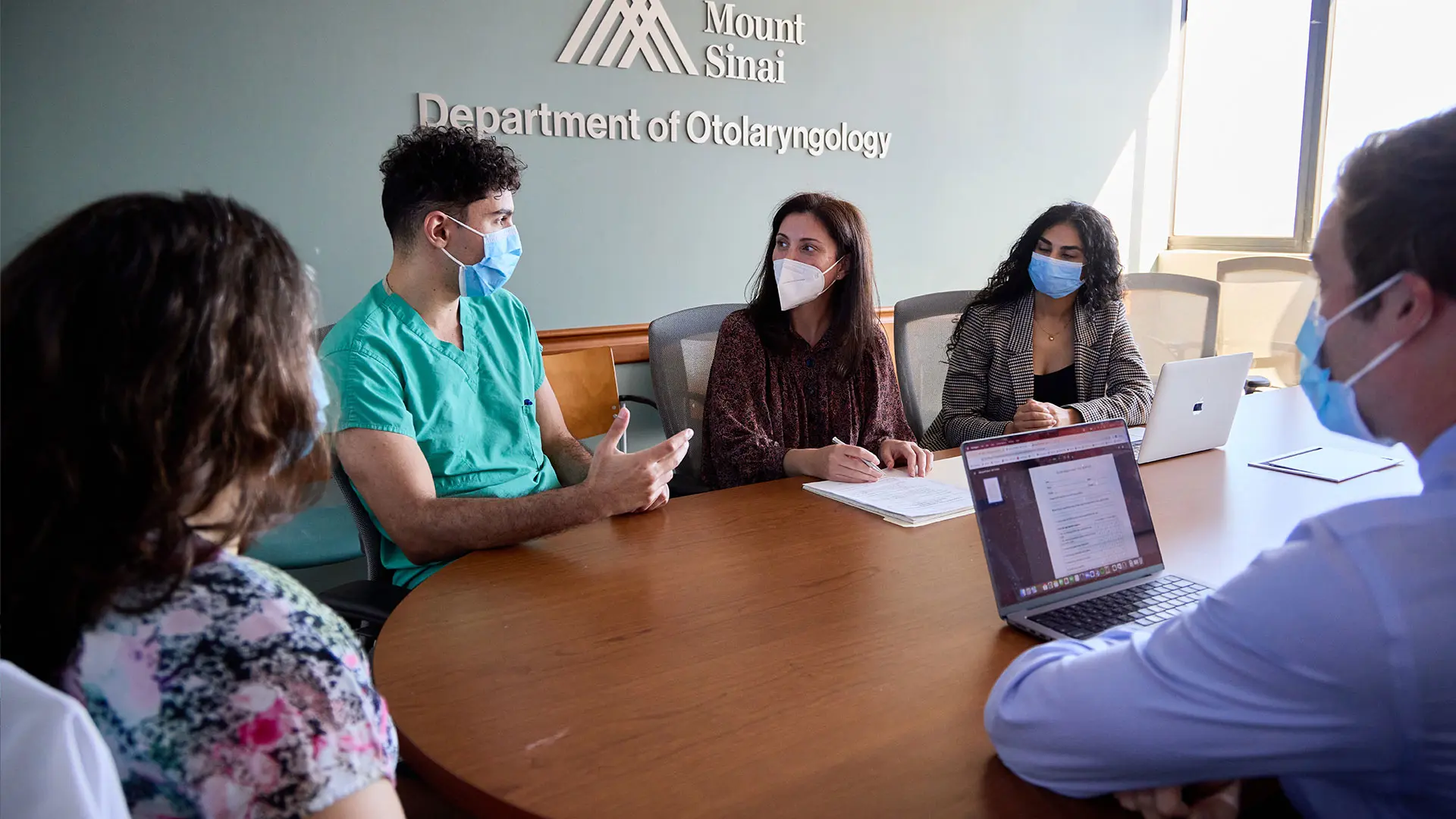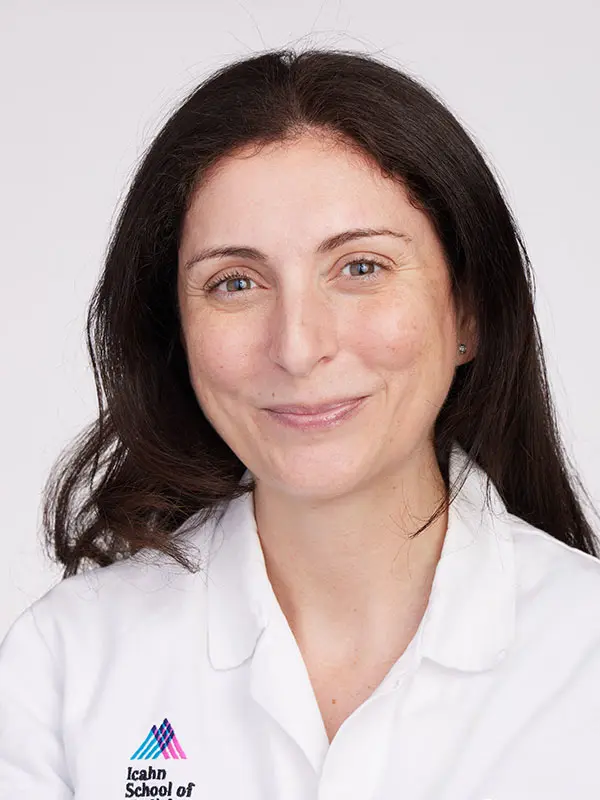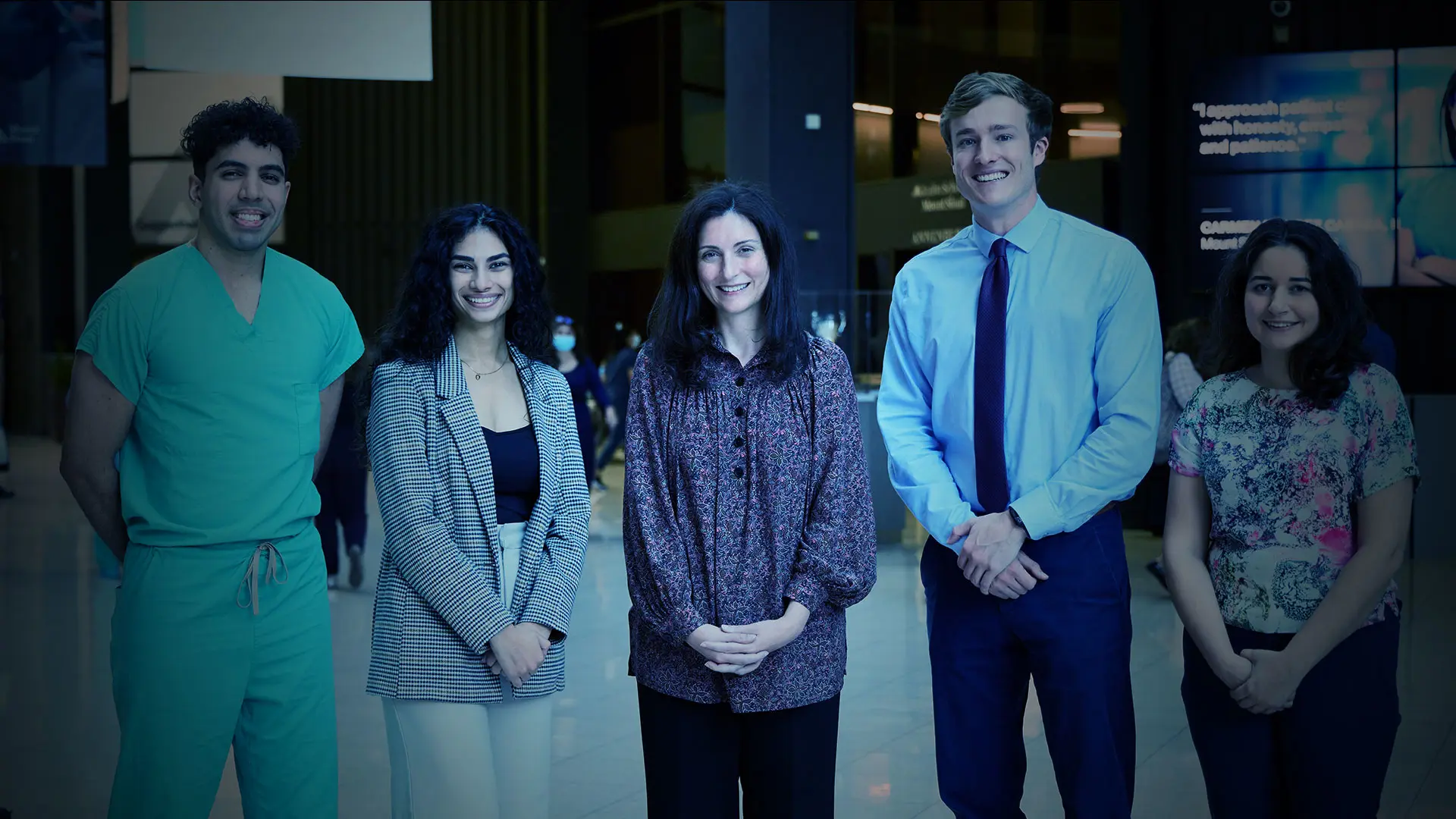As the competition to secure otolaryngology residencies becomes increasingly fierce, Diana Kirke, MD, is noticing more interest among medical students in the research fellowships offered by the Department of Otolaryngology – Head and Neck Surgery at the Icahn School of Medicine at Mount Sinai.
“Students really need to have a strong resume that sets them apart from their peers,” says Dr. Kirke, Assistant Professor of Otolaryngology at Icahn Mount Sinai and Director of the Research Fellowship program. “What sets our offering apart is that we have four endowed research fellowships, the largest residency program nationwide, and many attendings. Our fellows gain a strong, broad overview in both the clinical and research side of the field and an opportunity to conduct their own research projects.”
What Fellowships Are Available?
The Department’s research fellowships offer third- and fourth-year medical students options for engaging in a yearlong research project with a faculty mentor that they can tailor to suit their interests. The four fellowships are:
The Eugen Grabscheid, MD, Research Fellowship, which encourages medical students to consider a career in otolaryngology and/or head and neck surgery
The Ronald Hoffman, MD, Research Fellowship, which encourages young scholars to pursue a career as a physician-scientist
The William Lawson, MD, DDS, Research Fellowship, which encourages young scholars to pursue a career as a physician-scientist
The Steven Sacks, MD, and Carole Sacks Research Fellowship in Otolaryngology – Head and Neck Surgery, which has been instrumental in furthering the careers of medical students interested in otolaryngology
Students can also shadow clinical activities and are expected to participate in all departmental educational activities, such as head-and-neck-cancer tumor board and grand rounds.
“We average between 20 and 25 applications each year for these four fellowships,” Dr. Kirke says. “That reflects the interest among students in working alongside our academic surgeon-scientists, learning their techniques, and ultimately matching into residency in otolaryngology.”
What to Expect
Students accepted into the fellowships begin their academic year with a research boot camp, in which they participate in introductory statistics and population health courses and meet with department faculty to learn about the full scope of research being conducted at Mount Sinai.
“The intent is not just to give them an idea as to what they will be working on, but also to inspire them to think about the research they want to conduct and how it will complement our efforts,” Dr. Kirke says. “We want them to be able to develop an idea, formulate a hypothesis, investigate that, and reach an outcome—all of which provides them with a strong foundation to pursue a career as an academic surgeon-scientist.”

Dr. Kirke (center) with research fellows.
Over the course of each fellowship, students will work on an average of 15 to 20 projects, including database creation, poster presentations, and publications. Although Dr. Kirke meets with the fellows periodically to assess progress and make necessary adjustments in their objectives, much of their work is self-directed to ensure they develop the confidence and competence to excel academically and professionally. At the end of the year, each fellow conducts a grand round of their fellowship experience and delivers a seven-minute presentation during the Otolaryngology Resident Research Day.
“The fellowships are very comprehensive, with more research opportunities than fellows can cover in a year,” says Dr. Kirke. “We see that as a positive in that they can continue to explore those ideas as a resident or junior attending or hand them off to the incoming cohort.”
When the Fellowship Is Complete
After offering the fellowships informally for several years, the Department formalized them in 2021. All students who completed informal fellowships were subsequently matched into otolaryngology programs. Moreover, the two cohorts who have participated in the formalized fellowships have demonstrated impressive productivity in their research, and a third cohort has been enrolled. Based on that success, Dr. Kirke is exploring ways to evolve the fellowships, such as incorporating a master’s degree, and is looking at accepting international candidates.
Featured

Diana Kirke, MD
Assistant Professor Otolaryngology and Director of the Research Fellowship Program
